From issues like citizenship for children to bidding on cancer treatment drugs, from customs procedures for semiconductor chips to badminton court rental prices… all these seemingly small details are where institutions touch real life. Institutional reform, therefore, cannot be just grand pronouncements but must begin with the most concrete and practical solutions for the people, businesses, and the development of the country. The overarching principle emphasized by the National Assembly deputies from Hue City is that institutions must originate from real-life situations, unlock development resources, and ensure the legitimate rights and interests of the people.
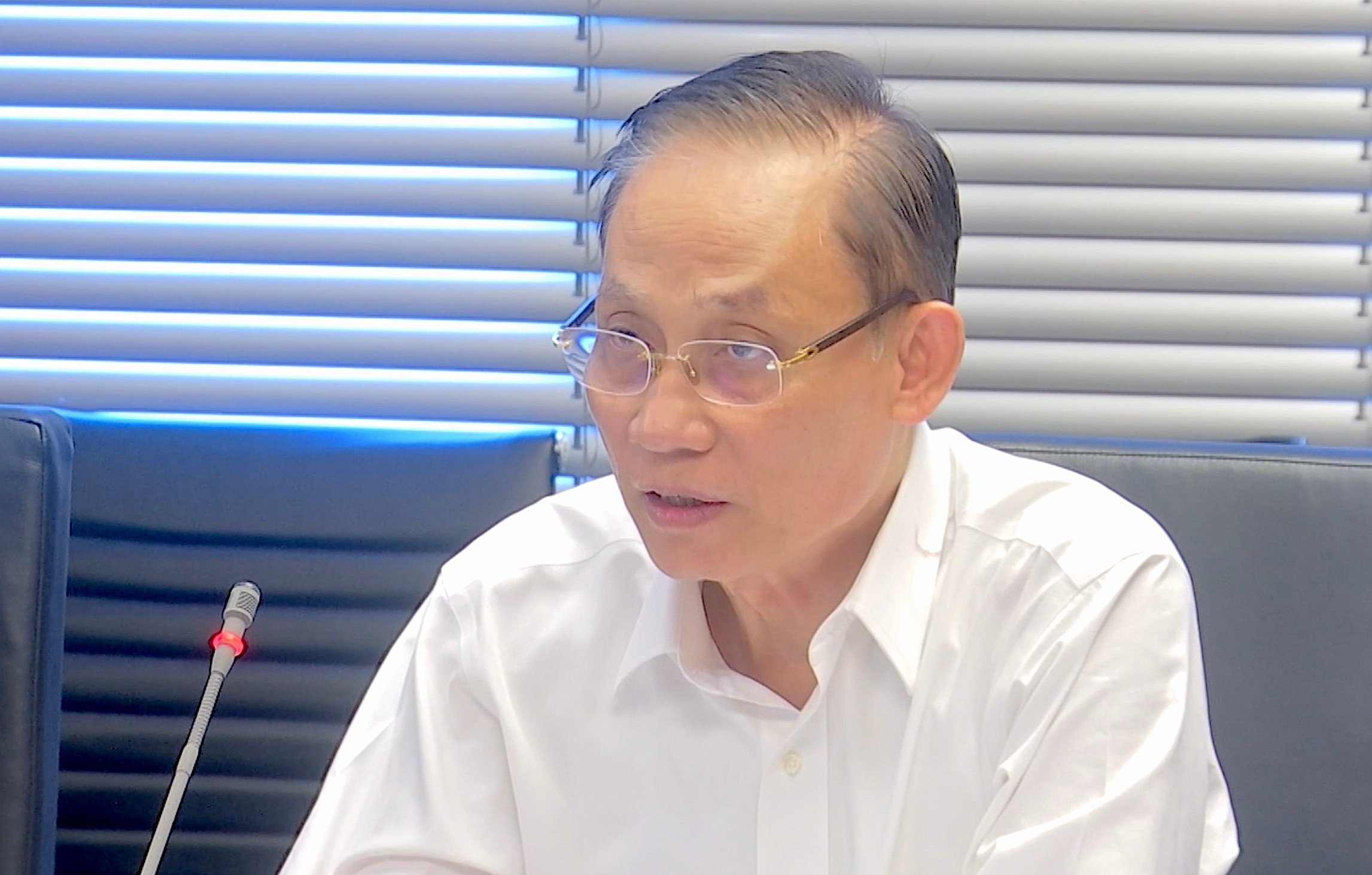 |
| Representative Le Hoai Trung emphasized that the issue of nationality is not merely a legal matter but also relates to national sovereignty . |
We must protect the rights of children and prevent stateless children.
Representative Le Hoai Trung, Chief of the Central Party Office (Hue City National Assembly Delegation), emphasized that the issue of nationality is not merely a legal matter but also relates to national sovereignty, citizens' rights, and the practical interests of each individual.
According to him, the current draft amendment to the Law on Nationality still contains complex and difficult-to-understand provisions for the public, especially in cases involving children whose father or mother is a foreigner.
"We need to write laws in a way that people can understand at a glance, without needing a lawyer. If parents agree to give their child Vietnamese citizenship, then that agreement should be recognized. If they cannot reach an agreement, the child should automatically retain Vietnamese citizenship, unless they have acquired citizenship in another country," Mr. Trung proposed.
Mr. Le Hoai Trung also suggested that a mandatory name change to Vietnamese should be reconsidered upon naturalization. "Vietnam uses the Latin alphabet, so foreign names don't affect administration. We must be flexible, respect cultural diversity, and not impose our will," Mr. Trung said.
Representative Nguyen Thi Suu, Deputy Head of the Hue City National Assembly Delegation, pointed out a legal loophole: "The current law does not clearly regulate the case of children whose parents have renounced Vietnamese citizenship but have not acquired foreign citizenship, which could easily lead to the children being stateless – a situation inconsistent with the International Convention on the Rights of the Child, which Vietnam has signed."
Ms. Suu suggested that it should be clearly stipulated that, in cases where a child does not yet have a foreign citizenship, they should still be recognized as having Vietnamese citizenship.
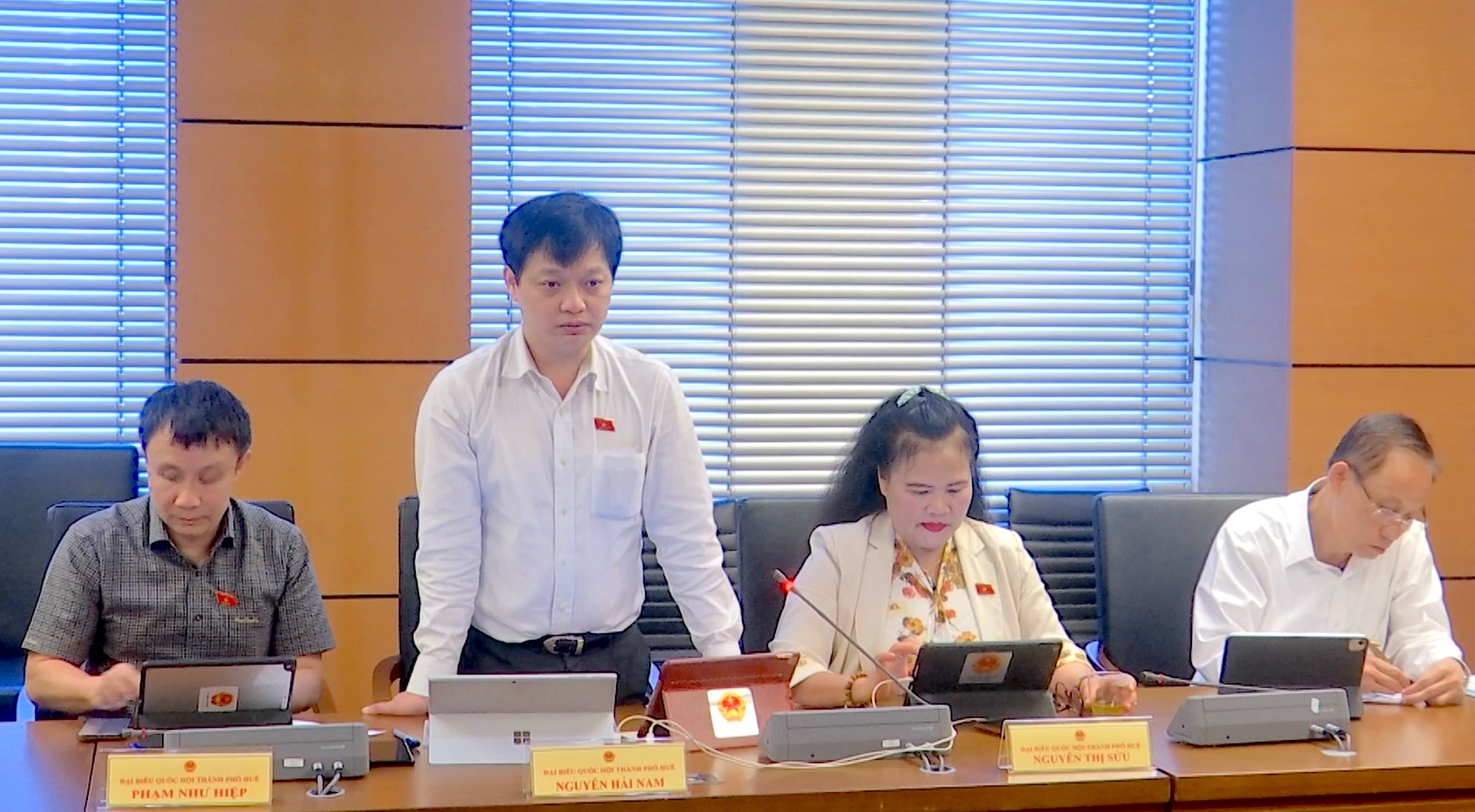 |
| Representative Nguyen Hai Nam argued that in recent years, although the bidding process has been very systematic and rigorous, it has lacked effectiveness. |
Don't let transparency become just a formality in bidding.
Regarding the draft Law on Bidding, Representative Nguyen Hai Nam (Hue City National Assembly Delegation) stated that in recent years, although the bidding process has been very systematic and rigorous, it has lacked effectiveness. “I support transparency, but transparency doesn't mean being so rigid that it leads to losses. There are bidding packages where the process is followed completely, but ultimately the winning bidder is the cheapest but of poor quality, leading to cost overruns, delays, and ultimately, the people bear the brunt of it,” Mr. Nam said.
Particularly in the healthcare sector, Mr. Nam proposed the need for a special mechanism, arguing that applying standard bidding regulations mechanically is unacceptable. "Many specialized drugs and medical equipment have only one supplier. Mandating bidding when there's only one option is nothing more than a formality," Mr. Nam emphasized.
The Director of Hue Central Hospital, delegate Pham Nhu Hiep, also agreed and emphasized the heartbreaking reality today: "There are certain types of cancer treatment drugs or heart surgery equipment that only one manufacturer produces in the entire country. The bidding process is merely a formality; no one even dares to participate because the legal risks are too great. As a result, hospitals lack medication, and patients suffer."
Mr. Hiep proposed a bold but practical approach: "The Ministry of Health should negotiate price ceilings with suppliers and create a standard price list. Hospitals can then purchase based on that list, which is both faster and ensures quality."
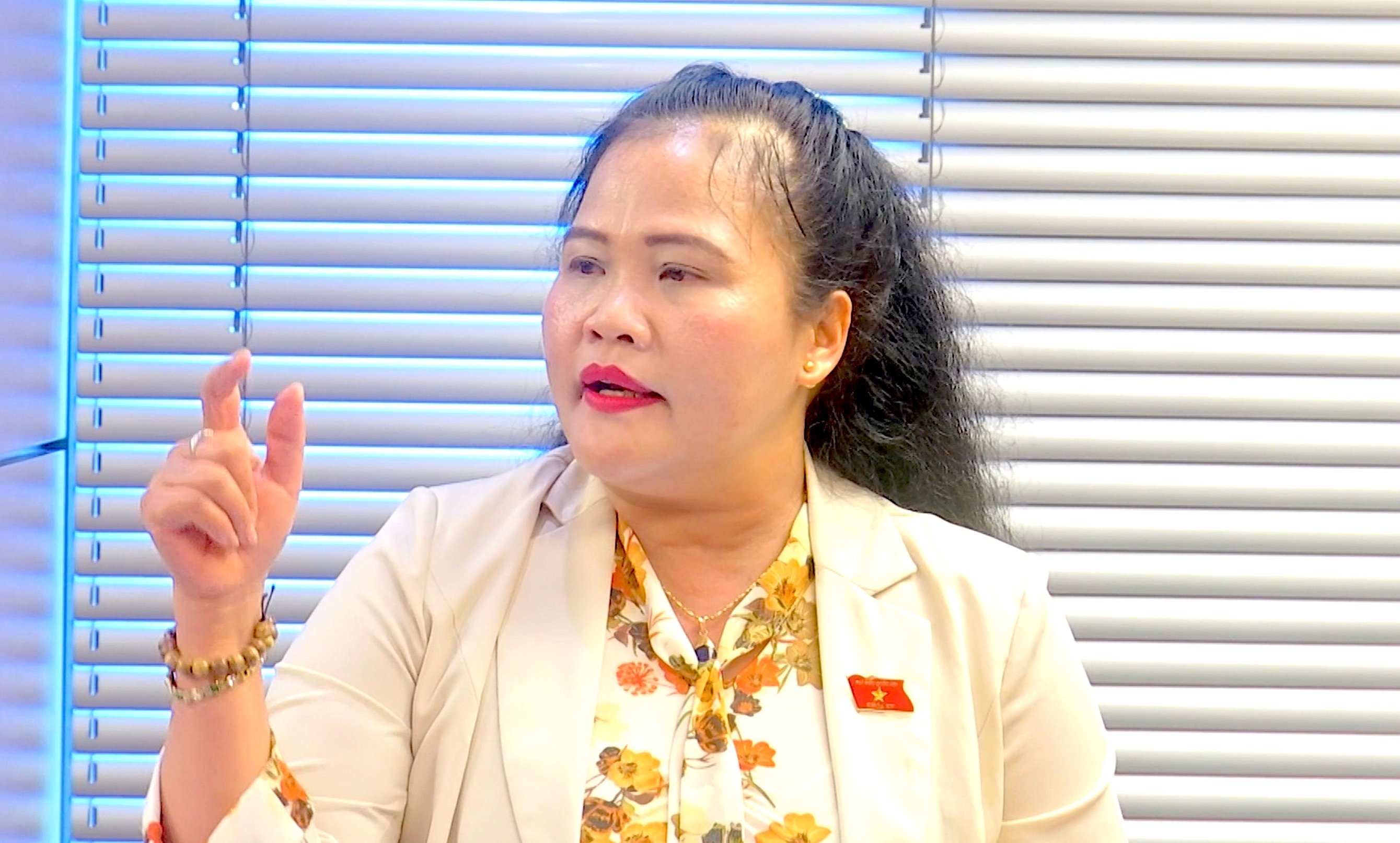 |
| Representative Nguyen Thi Suu suggested that it should be clearly stipulated that, in cases where a child does not yet have a substitute foreign citizenship, they should still be recognized as having Vietnamese citizenship. |
Special mechanisms are needed for high technology.
Representative Nguyen Hai Nam proposed that the amended Customs Law should include a separate chapter on high-tech enterprises, especially in fields such as microchips and semiconductors – industries of global strategic importance. “We aspire to become a regional technology manufacturing hub, and customs must keep pace. We cannot allow businesses to wait a whole week just to clear customs for a few spectrometers worth millions of dollars,” Representative Nguyen Hai Nam stated.
He cited the experiences of countries like Singapore, South Korea, and Japan, where high-tech businesses enjoy a separate customs process, taking only a few hours or undergoing entirely electronic procedures. "Reform here is not just about shortening procedures, but also about how Vietnam demonstrates its commitment to investors," Mr. Nam said.
Regarding the Law on Management and Use of Public Assets, Representative Pham Nhu Hiep pointed out a bitter reality: Many public assets are auctioned off for lease at high prices, making it impossible for public cultural, sports, and health units to afford them, forcing them to cease operations or find alternative locations.
"There was a badminton court that used to cost 300,000 VND per month to rent, but after the auction, the rent increased to 2 million VND. People can no longer afford to rent it. So, does it still serve its social purpose?", Mr. Hiep questioned.
According to Mr. Hiep, public assets should be classified according to their intended use, and assets serving social purposes should receive special preferential treatment and cannot be auctioned off like ordinary business assets.
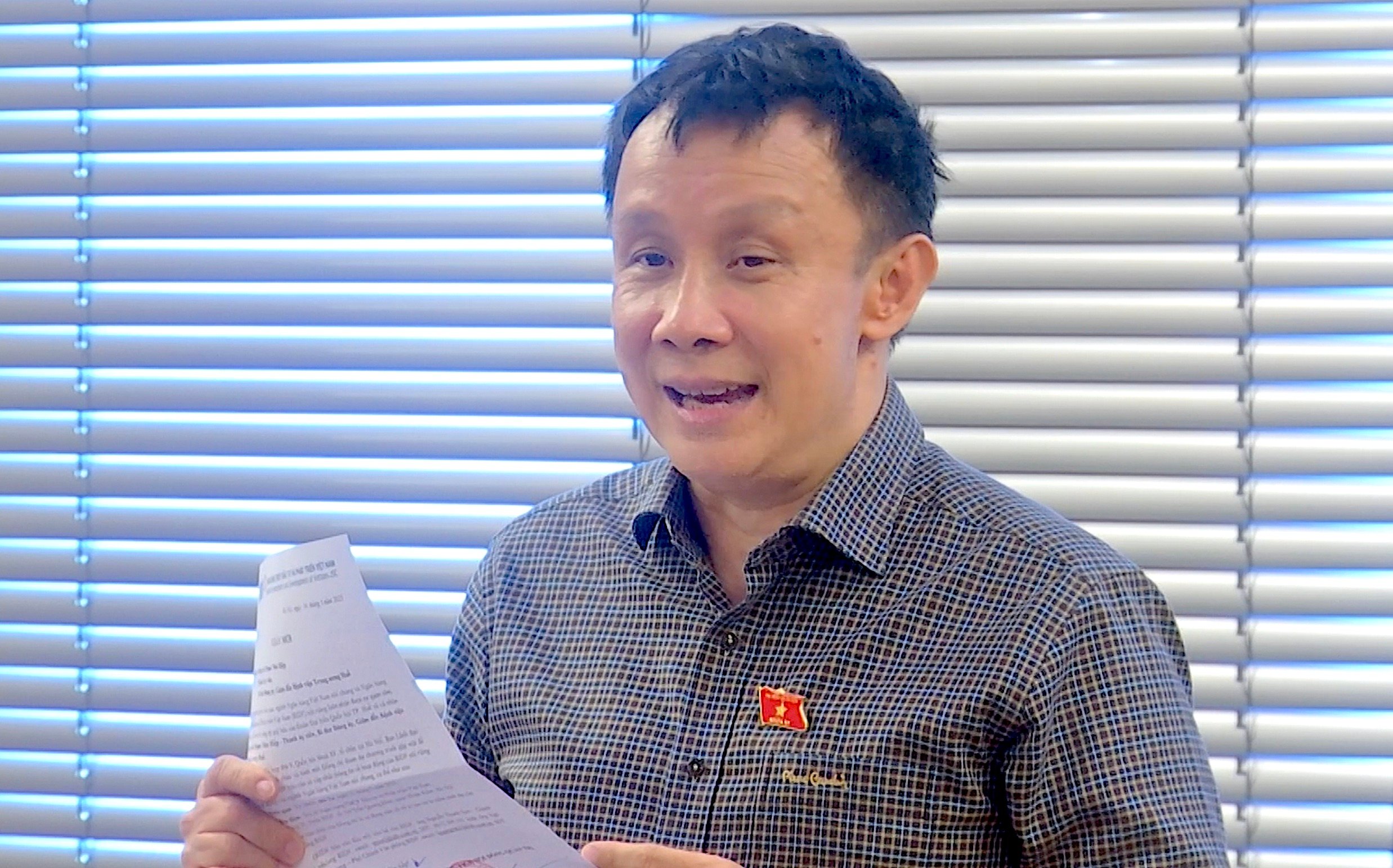 |
| Representative Pham Nhu Hiep pointed out many shortcomings in bidding in the healthcare sector. |
Institutional reform: It's not enough to just change the wording.
From a broader perspective, the delegates of the Hue City National Assembly Delegation unanimously agreed that amending laws cannot simply change the wording but must address "institutional bottlenecks," create momentum for development, and protect citizens' rights. Delegate Le Hoai Trung shared: "Laws cannot be separated from reality. Each law affects millions of people, the operation of the government apparatus, and businesses. Therefore, amending laws must stem from reality and the needs of the people."
Concurring, delegate Nguyen Hai Nam further emphasized: "For many years, we have been struggling with issues such as cumbersome administrative procedures, delayed public investment, and wasteful use of public assets... Where does the root cause lie? It lies in the institutions. And to reform the institutions, we must dare to look at reality and dare to cut out outdated parts."
Representatives from Hue City also suggested that the National Assembly should oversee the issuance of decrees and circulars under the law – which are the source of many "sub-licenses," causing difficulties for businesses.
Source: https://huengaynay.vn/chinh-polit-xa-hoi/theo-dong-thoi-su/go-nut-that-the-che-dam-bao-quyen-cong-dan-trong-sua-luat-153714.html



![[Photo] Prime Minister Pham Minh Chinh receives the Governor of Tochigi Province (Japan)](/_next/image?url=https%3A%2F%2Fvphoto.vietnam.vn%2Fthumb%2F1200x675%2Fvietnam%2Fresource%2FIMAGE%2F2025%2F12%2F16%2F1765892133176_dsc-8082-6425-jpg.webp&w=3840&q=75)
![[Image] Leaked images ahead of the 2025 Community Action Awards gala.](/_next/image?url=https%3A%2F%2Fvphoto.vietnam.vn%2Fthumb%2F1200x675%2Fvietnam%2Fresource%2FIMAGE%2F2025%2F12%2F16%2F1765882828720_ndo_br_thiet-ke-chua-co-ten-45-png.webp&w=3840&q=75)

![[Photo] Prime Minister Pham Minh Chinh receives Lao Minister of Education and Sports Thongsalith Mangnormek](/_next/image?url=https%3A%2F%2Fvphoto.vietnam.vn%2Fthumb%2F1200x675%2Fvietnam%2Fresource%2FIMAGE%2F2025%2F12%2F16%2F1765876834721_dsc-7519-jpg.webp&w=3840&q=75)


























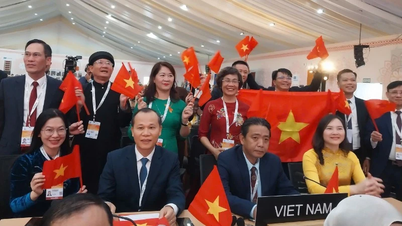







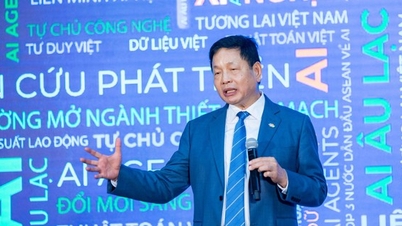

























![[Photo] Prime Minister Pham Minh Chinh attends the Vietnam Economic Forum 2025](https://vphoto.vietnam.vn/thumb/402x226/vietnam/resource/IMAGE/2025/12/16/1765893035503_ndo_br_dsc-8043-jpg.webp)




























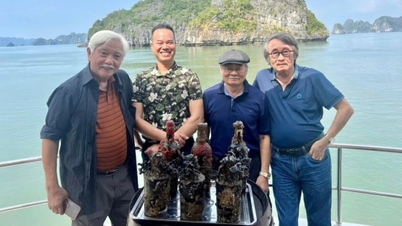





Comment (0)